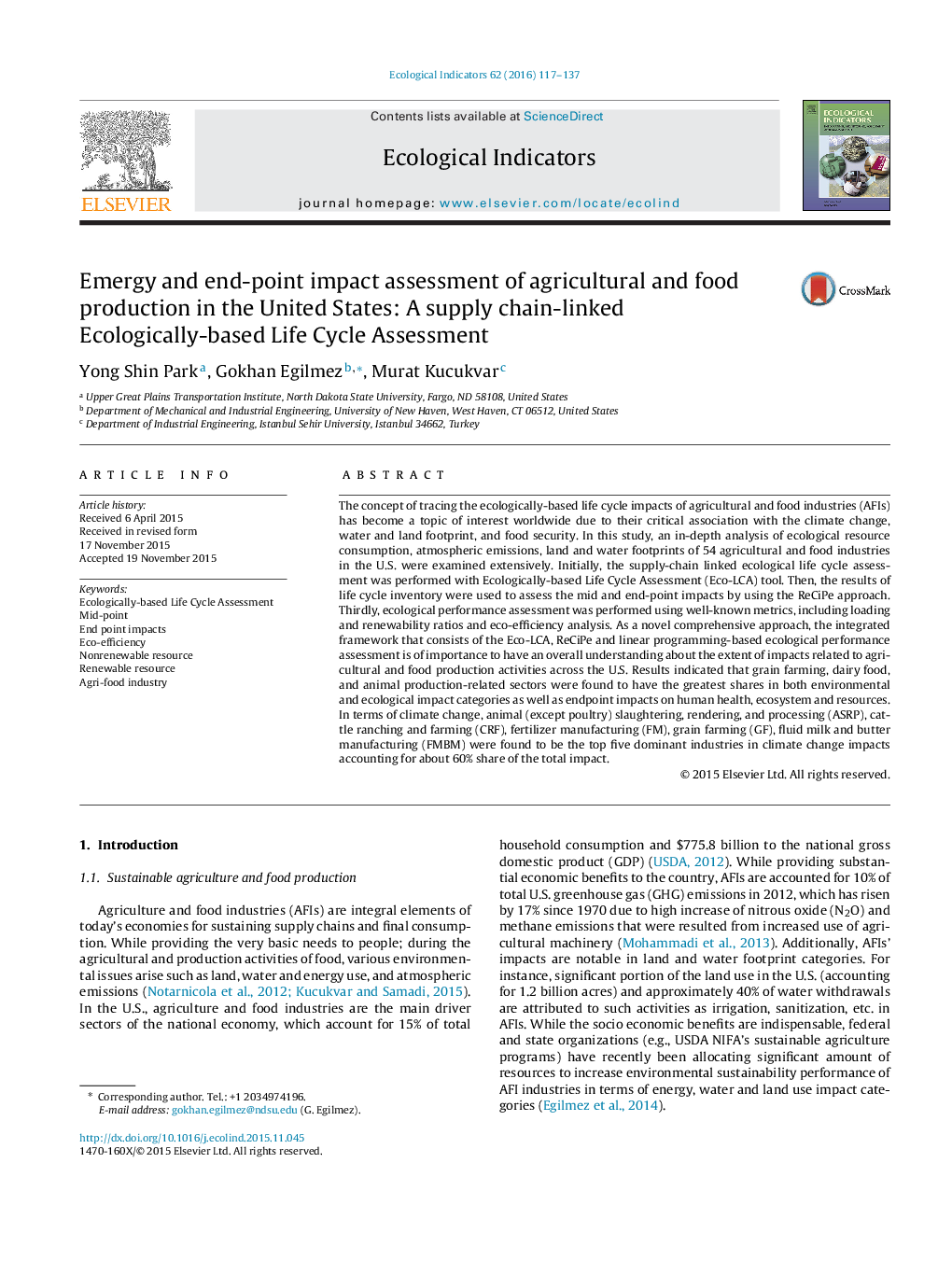| Article ID | Journal | Published Year | Pages | File Type |
|---|---|---|---|---|
| 6293932 | Ecological Indicators | 2016 | 21 Pages |
Abstract
The concept of tracing the ecologically-based life cycle impacts of agricultural and food industries (AFIs) has become a topic of interest worldwide due to their critical association with the climate change, water and land footprint, and food security. In this study, an in-depth analysis of ecological resource consumption, atmospheric emissions, land and water footprints of 54 agricultural and food industries in the U.S. were examined extensively. Initially, the supply-chain linked ecological life cycle assessment was performed with Ecologically-based Life Cycle Assessment (Eco-LCA) tool. Then, the results of life cycle inventory were used to assess the mid and end-point impacts by using the ReCiPe approach. Thirdly, ecological performance assessment was performed using well-known metrics, including loading and renewability ratios and eco-efficiency analysis. As a novel comprehensive approach, the integrated framework that consists of the Eco-LCA, ReCiPe and linear programming-based ecological performance assessment is of importance to have an overall understanding about the extent of impacts related to agricultural and food production activities across the U.S. Results indicated that grain farming, dairy food, and animal production-related sectors were found to have the greatest shares in both environmental and ecological impact categories as well as endpoint impacts on human health, ecosystem and resources. In terms of climate change, animal (except poultry) slaughtering, rendering, and processing (ASRP), cattle ranching and farming (CRF), fertilizer manufacturing (FM), grain farming (GF), fluid milk and butter manufacturing (FMBM) were found to be the top five dominant industries in climate change impacts accounting for about 60% share of the total impact.
Related Topics
Life Sciences
Agricultural and Biological Sciences
Ecology, Evolution, Behavior and Systematics
Authors
Yong Shin Park, Gokhan Egilmez, Murat Kucukvar,
